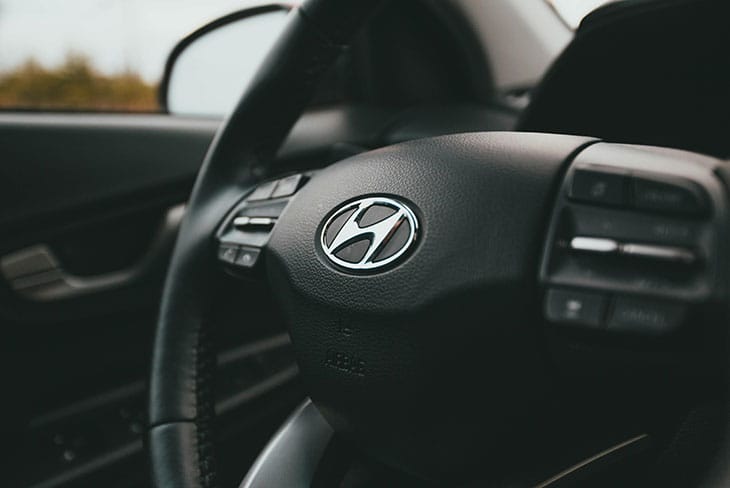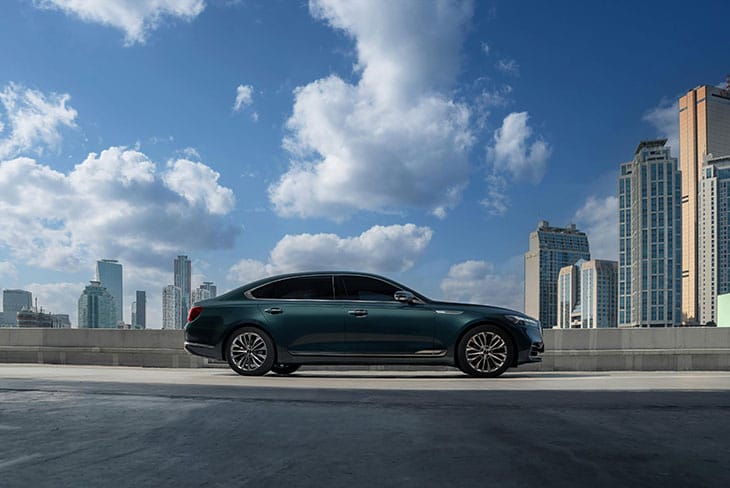How does a car qualify for lemon law in California?
 October 4, 2022
October 4, 2022- Categories: Lemon Law

If you’re wondering “how does a car qualify for lemon law in California,” you’ve landed on the right page. Our skilled lemon law attorneys at Neale & Fhima can explain your rights and show you what to do to increase your chances of success.
First, your new or used car must have a chronic defect, covered under the original manufacturer’s warranty, that doesn’t seem to ever go away no matter how many times you take it to the dealership for repairs. The defect doesn’t have to be life threatening, but it does have to substantially impact the vehicle’s use, value or safety. The defect cannot be caused by owner abuse or neglect.
A car qualifies for lemon law in California by sending a letter to a manufacturer to put them on notice that you’ll be filing a lemon law claim and then demonstrating that you’ve made a reasonable number of attempts to get your car fixed. So, make sure you save all receipts, work orders, and spare parts (if applicable) from each of your repair appointments.
What qualifies as a lemon car in California?
A lemon car in California is one that is chronically defective and experiences the same mechanical or electrical problem over and over no matter how many times you take it in to the shop to get fixed.
Keep in mind that the lemon law not only covers cars but also pickup trucks, vans, SUVs, boats and other watercraft, RVs, and motorcycles. It also covers the chassis, chassis cab, and drive train of a motor home. Dealer-owned vehicles and demonstrators also qualify, in addition to personal and family vehicles. The lemon law does not apply to vehicles not registered under the California Vehicle Code, such as off-road vehicles.
The California Department of Motor Vehicles publishes a Car Buyer’s Bill of Rights explaining legal protections for consumers. If you believe you wound up with a lemon because of dealer fraud, you can file a Record of Complaint Form with the DMV or contact the Office of the California Attorney General. In most instances, the lemon law does not apply to private sales.
Why choose Neale & Fhima to represent you?
At Neale & Fhima, we bring more than 40 years of experience to fighting for lemon law clients in Southern California. We have countless satisfied clients, and our legal team will impress you with their compassion and professionalism. Attorney Aaron Fhima has an exceptionally keen legal mind, and we are proud of our outstanding record of success in winning cases.
- We Know the Law.California’s lemon law is a true example of how the state legislature can empower consumers. When it comes to clarity, though, the text of the statute can be vague and confusing. As a consumer, the statute may seem hard to understand or be filled with legal jargon. Our lemon law attorneys understand the quirks of the statute, and the many court opinions interpreting it. We put this knowledge to work for you.
- No Surprises. A handful of manufacturers control the auto market in the U.S. We repeatedly go up against the same companies. Some of the largest are Ford, Toyota, GM, Chrysler, and Honda. Luxury automakers are also included. Our skill and experience allows us to anticipate how manufacturers will respond to claims involving specific models and mechanical defects. Our lemon law lawyers will share these insights with you from Day One, so you are never uncertain about what to expect.
What factors are used to determine whether a vehicle is a lemon?
California’s lemon law is known as the Song-Beverly Consumer Warranty Act. if you purchase a defective vehicle in California, you are legally entitled to a refund, or the vehicle can be replaced at the manufacturer’s expense. First, though, you must prove that your car or truck is a lemon according to legal guidelines, and that’s where a skilled lemon law lawyer can help. If you’re wondering what factors are used to determine whether a vehicle is a lemon, here are elements to keep in mind:
- The vehicle was purchased/leased in a retail transaction.
- The dealer had a “reasonable number” of attempts to make the repairs.
- The transaction took place in California (active military may be exempt).
- The defect substantially impairs the vehicle’s use, value, or safety.
- The defect is covered under the manufacturer’s warranty.
Defects can include a wide variety of mechanical or electrical problems, such as problems with:
- Engine
- Exhaust system
- Steering
- Brakes
- Windows and doors
- Seats
- Mirrors
- Airbags
- Paint
- Lights.
The lemon law typically does not provide a remedy for small problems like minor paint scratches or small flaws in the interior fabric, but it does cover many defects that could reduce the vehicle’s resale value or daily use, even if they don’t pose an imminent danger of crash or collision.
What defects do not qualify for lemon law protection?
There are certain types of defects that the California lemon law will not cover. These include:
- Problems arising from repair attempts by unauthorized agents or owner
- Defects caused by motor vehicle accidents
- After-market installations
- Owner abuse and neglect
- Damage caused by weather.
Always remember that you should take your vehicle to an authorized dealer when making the required repair attempts to correct your vehicle’s defect. If you try to fix your car yourself or enlist the help of a neighborhood mechanic or family friend, your lemon law claim could be invalid. You can find out more by reading How Does the Lemon Law Work in California.
What are my potential remedies?
A successful lemon law claim gives you choices, and you can pick the option that works best for you. Potential remedies include:
Option 1: Repurchase
The manufacturer will take possession of your car or truck and issue you a refund of the purchase price (minus the depreciation/mileage of your use before the first repair attempt). This is often referred to as a lemon law buyback. If you financed the vehicle, the manufacturer will refund the payments and down payment, and it will pay off the loan at your lending institution. You will also receive a refund of the registration fee, taxes, and other costs.
Option 2: Replacement
The manufacturer will take possession of the vehicle and exchange it for a new one. It must be an identical or substantially similar vehicle, and the manufacturer will pay the registration and taxes on the new vehicle. However, you will not receive a refund of fees or finance charges paid on the original (defective) vehicle. This option requires the consent of both parties.
Option 3: Cash and Keep
Sometimes, we can negotiate an additional option called a “cash and keep.” The manufacturer will compensate you for the defect and you keep your vehicle.
Statute of Limitations
The statute of limitations for a lemon law claim in California is four years from the date a consumer knew or should have known that the vehicle was a lemon. This doesn’t mean that if you have had your vehicle for more than 4 years, you cannot bring a lemon law claim. Our attorneys have successfully “lemoned” vehicles that are more than 10 years old. However, if you’ve purchased or leased a lemon, you’ll want to start the buyback process as soon as possible. The sooner you begin, the better. Once the statute of limitations has passed, a judge may dismiss your claim. Don’t worry about our attorney’s fees — these are paid by the manufacturer as part of a successful lemon law claim.
Contact Neale & Fhima Today
If you are frustrated because you discovered that your car is a lemon and spends more time in the repair shop than on the road, don’t give up in despair. You may have a lemon law claim that provides a remedy. Unfortunately, even during the original warranty period, some manufacturers will try to fight owners’ and lessees’ lemon law claims. They’ll argue that a defect is too minor to warrant a repurchase or replacement, or they may claim that you are not eligible because you caused the vehicle’s defect yourself. Don’t give in to these tactics. Make sure you have a tough and aggressive lemon law attorney on your side.
The experienced lemon law lawyers at Neale & Fhima have helped hundreds of clients get a new or replacement vehicle under California’s lemon law. We will fight for your rights, too. To find out more about how we can help, call us for a free consultation at 949-661-1007.

Attorney Aaron Fhima
Attorney Aaron Fhima is a trial attorney who has secured numerous settlements and verdicts against large corporations and some of the largest auto manufacturers in the world. Representing consumers and injury victims throughout the state of California, Aaron’s practice areas include personal injury, and lemon law litigation. Aaron has a long record of success taking on large defense firms; and he doesn’t hesitate to take cases to trial when necessary to enforce his clients’ rights.



